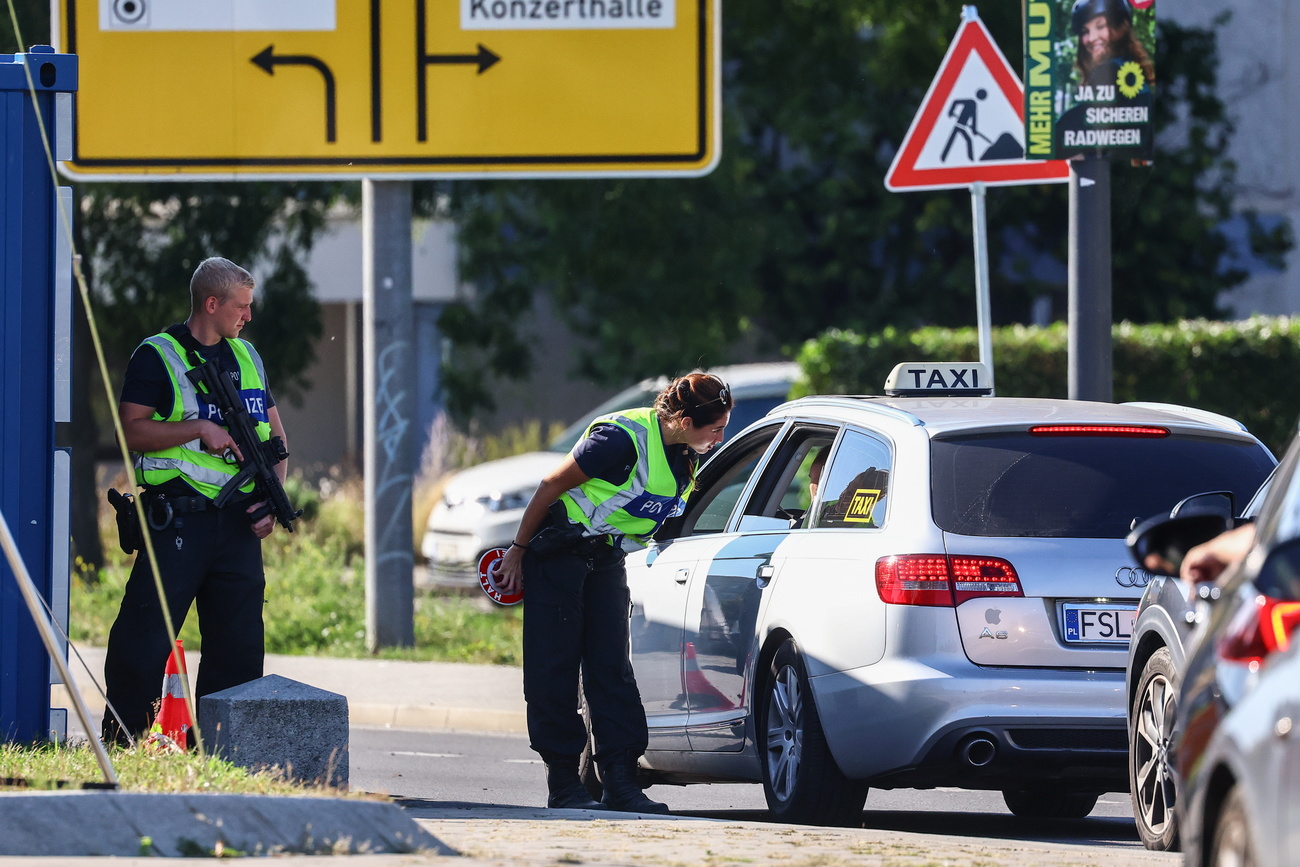World Social Forum wraps up in Mumbai

Thousands of people took to the streets of Mumbai, India, on Wednesday on the final day of the World Social Forum (WSF).
The world’s biggest anti-globalisation gathering was attended by some 100,000 people from 132 countries, including Switzerland.
The 50-strong Swiss delegation was made up of parliamentarians, trade unionists and members of non-governmental organisations (NGOs).
“I was impressed by the human aspect of the forum,” said Bernard Fragnière, president of the Swiss NGO, E-Changer.
“It was a clear lesson that politics is not just about being intellectual, but also about being sensitive and human.”
Civil society
The WSF – billed as an alternative to the World Economic Forum summit currently underway in the Swiss mountain resort of Davos – was attended by a large number of civil society groups.
Shafique Keshavjee, a Protestant theologian from India who lives in canton Vaud, said the forum provided delegates with the opportunity to see for themselves the problems facing Indian society.
“The forum is a place where you can hear many reports of suffering and of political, social, sexual and economic oppression,” she said.
“But at the same time, suffering here is not just about complaining, it has been transformed into power, into an ability to resist. And suffering and resistance are two things which humans are capable of experiencing with great dignity.”
Force for change?
Swiss parliamentarian Rudolf Strahm said India’s Dalits – once known as “untouchables” – might also benefit in the long-term from the discussions in Mumbai.
“If progressive intellectuals in India joined forces with the movements of women, stateless people and the untouchables, they could create majorities capable of changing the balance of power in the country,” said Strahm.
Strahm – a member of the official Swiss delegation in Mumbai – believes the WSF also succeeded in looking ahead to future challenges.
“New topics emerged here, such as technology, in particular free software and nanotechnology, and the role of women in the processes of social and economic development.”
Local and global
“The WSF is always a meeting place between local and global, between the majority of local participants and those who move from one event to the next,” commented Jean Rossiaud, a sociologist from Geneva University.
Rossiaud says the WSF needs to do more in future to attract participants from former Soviet-bloc countries.
“What we can say after Mumbai is that the WSF is continuing to grow in terms of both numbers and topics. But it’s not over yet. The entire ex-Soviet Union is still largely outside the process.”
The first three World Social Forums were held in Porto Alegre, Brazil.
Next year’s forum is scheduled to return to Porto Alegre, but the event may shift to Africa in 2006.
swissinfo
The World Social Forum (WSF) wrapped up on Wednesday with a street demonstration in Mumbai, India.
Some 100,000 people from 132 countries attended the forum.
The Swiss delegation in Mumbai was made up of parliamentarians, trade unionists and members of non-governmental organisations.
By its very nature, the WSF does not take decisions, and nobody can speak on behalf of the forum.

In compliance with the JTI standards
More: SWI swissinfo.ch certified by the Journalism Trust Initiative










You can find an overview of ongoing debates with our journalists here . Please join us!
If you want to start a conversation about a topic raised in this article or want to report factual errors, email us at english@swissinfo.ch.